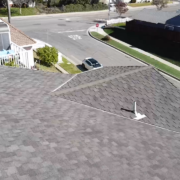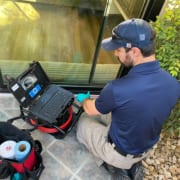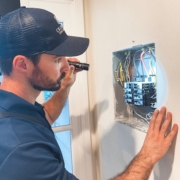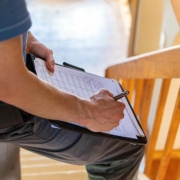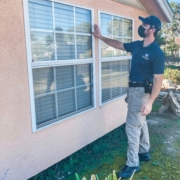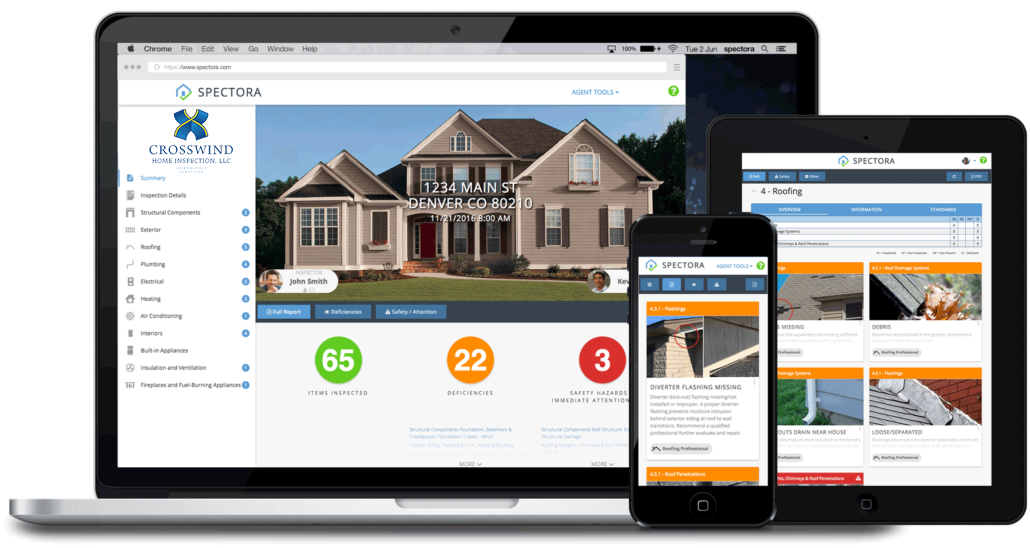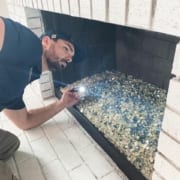Homeownership is a significant milestone for many individuals and families, and it comes with a plethora of responsibilities. One crucial aspect that should not be overlooked is the home inspection process, especially in regions like Orange County and LA County. Home inspections play a pivotal role in ensuring that a property is safe, structurally sound, […]
In the landscapes of Orange County and Los Angeles, where neighborhoods blend historical charm with modern amenities, homeowners face a unique set of challenges, particularly the hidden infrastructure beneath their properties. One aspect often overlooked is the health of sewer lines. In this blog, we dive into the significance of sewer scope inspections, shedding light on their importance, especially in older neighborhoods, and how they contribute to maintaining the overall health and functionality of a property.
Sewer scope inspections are a proactive measure that goes beyond the surface aesthetics of a home. In older neighborhoods, where aging infrastructure may be prevalent, these inspections become huge. Over time, sewer lines can deteriorate, leading to blockages, leaks, and potential hazards. A thorough inspection using specialized cameras allows certified inspectors to assess the condition of sewer pipes, identifying issues before they escalate into costly problems that could compromise the property’s functionality.
The contribution of sewer scope inspections to the overall health of a property cannot be overstated. Beyond the inconvenience of plumbing issues, compromised sewer lines can pose serious threats to the structural integrity of a home. Untreated issues may lead to soil erosion, foundation damage, and even affect the quality of indoor air. By investing in a sewer scope inspection, homeowners in Orange County and Los Angeles gain valuable insights into the state of their sewer lines, enabling them to address potential problems promptly and prevent extensive damage.
In the context of real estate transactions, sewer scope inspections provide an added layer of transparency. Homebuyers armed with the results of a thorough inspection can make informed decisions, negotiate repairs or pricing adjustments, and ensure that the property they are investing in is free from hidden plumbing issues. Sellers, in turn, benefit from the peace of mind that comes with a clean bill of health for their property’s sewer system, potentially increasing the marketability of their homes.
Sewer scope inspections in Orange County and Los Angeles are more than a routine check; they are a proactive investment in the long-term health and functionality of a property. Homeowners, whether considering a purchase or maintaining their current residence, can benefit significantly from the insights offered by certified inspectors. By looking beyond the surface, these inspections contribute to the resilience and sustainability of homes in the vibrant communities of Orange County and Los Angeles.
Preparing for a home inspection is a critical step for homeowners looking to sell their property, as it can significantly impact the outcome of the inspection and, subsequently, the sale of the home. Here are some essential tips to help homeowners ensure their property is ready for a home inspection, increasing the likelihood of a positive report.
First, decluttering is key to a successful home inspection. Clearing away personal items and excess belongings not only makes the property more visually appealing but also allows the inspector easy access to important areas. A clutter-free environment allows for a more thorough inspection of structural elements, electrical systems, and other critical components, reducing the chances of overlooking potential issues.
Addressing minor repairs before the inspection is another important step. Fixing leaky faucets, repairing damaged flooring, and addressing chipped paint may seem small, but they contribute to an overall impression of a well-maintained home. Home inspectors take note of these details, and addressing them in advance can prevent unnecessary concerns during the inspection process.
Ensuring that all utilities are turned on is often overlooked but is a vital aspect of preparation. Home inspectors need to test various systems, including heating, air conditioning, plumbing, and electrical. If these utilities are not functioning during the inspection, it can lead to incomplete assessments and may even necessitate a return visit, causing delays in the selling process.
Homeowners should also create easy access to key areas of the property. Clearing a path to the attic, basement, and electrical panel ensures that the inspector can examine these spaces thoroughly. Additionally, if the home has a crawl space, making sure it is accessible and well-lit is crucial for a comprehensive inspection. Accessibility saves time and demonstrates the homeowner’s commitment to transparency.
Lastly, being transparent about known issues is an ethical and practical approach. If there are known problems with the property, it’s advisable to inform the inspector upfront. This openness fosters trust and allows the inspector to focus on verifying the condition of the home rather than spending unnecessary time searching for undisclosed issues.
In conclusion, preparing for a home inspection involves a combination of decluttering, making minor repairs, ensuring utilities are functioning, providing easy access to key areas, and being transparent about known issues. By investing time and effort into these preparations, homeowners can maximize the chances of a positive home inspection report, instilling confidence in potential buyers and facilitating a smoother real estate transaction.
The attraction of a brand-new home often captivates prospective buyers with promises of modernity and flawlessness. However, the reality is that even new constructions can have issues that may sneak past the untrained eye. In regions like Orange County and Los Angeles County, where new developments pop up regularly, understanding the common defects in new builds becomes crucial. Thankfully, thorough inspections serve as an important tool in identifying and rectifying these issues before they turn into major concerns.
One prevalent issue in new constructions is poor craftsmanship. Rushed timelines and cost-cutting measures can lead to subpar workmanship, resulting in defects like uneven flooring, poorly installed fixtures, or messy paintwork. Inspections carried out by accredited experts explore all the details, examining every aspect of the construction process. These inspections help uncover potential flaws that might compromise the structural integrity or aesthetic appeal of the property, giving homeowners the opportunity to address these concerns with builders before finalizing the purchase.
Another common issue in new builds involves electrical and plumbing systems. Faulty wiring, insufficient insulation, or improper plumbing installations can have significant safety risks and lead to inconvenience down the line. Inspections play a pivotal role in assessing these critical systems, ensuring compliance with safety codes and standards. In Orange County and Los Angeles County, where strict rules guide construction, thorough inspections help find any mistakes from the usual way of doing things and make quick fixes.
Additionally, problems with not enough fresh air and insulation are common in new buildings. Badly sealed windows, not enough insulation, or poor ventilation systems can make the place use more energy, feel uncomfortable, and maybe even cause health issues. When inspections look at these things, they figure out where things need to get better to save energy and make the air inside better. In places like Orange County and Los Angeles County, where the weather matters a lot, fixing these issues early on can save homeowners a lot of money in the long run and make their homes more comfortable to live in.
In simple terms, even though new homes seem perfect, they can still have problems. Inspections are super important when you’re buying a home, especially in places like Orange County and Los Angeles County, where there are a lot of new buildings going up. These inspections don’t just look at the surface – they really dig into the details. That way, homeowners can make smart choices and talk to the builders about fixing things up. Overall, by catching and dealing with these issues early on, inspections make sure homeowners have a safe, comfy, and stress-free time in their new homes.
If the seller has agreed to have some items fixed that were found during the initial home inspection, I always recommend double-checking any reported repairs by having your inspector perform a repair verification inspection as part of your due diligence process. You are required to perform your due diligence and the phrase “trust but verify” certainly applies here, especially if it was an expensive fix or a safety-related item. I have found on a few occasions some things that were not repaired properly, and sometimes the seller isn’t even aware of that fact.
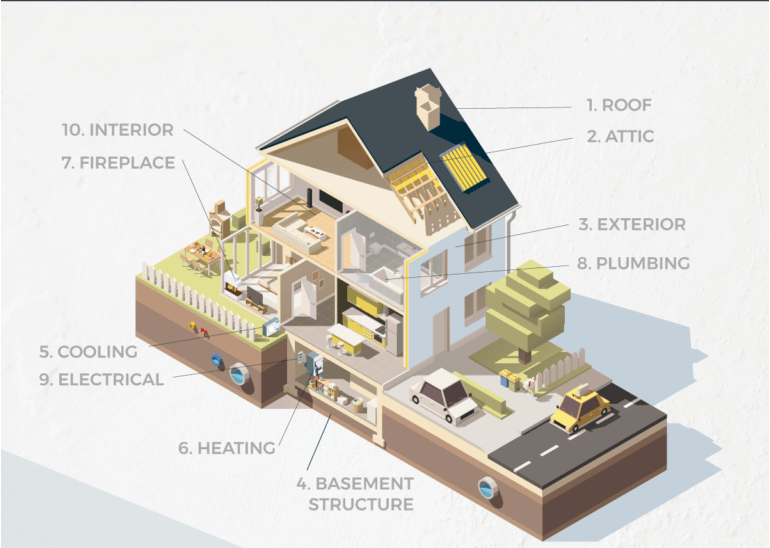
What is a repair verification inspection
A repair verification inspection entails a second visit to the property by your inspector to assess the condition of items that the seller has agreed to have fixed. Your inspector will compare what he/she sees after the repair to what was present at the first inspection and then determine if the defect has been properly resolved.
After your home inspection has been completed and the report published, you will need to get together with your real estate agent and decide how you want to proceed. I strongly advise following your agent’s recommendations here, they are the experts when it comes to this stuff and they have your best interest in mind.
What should I have double-checked
After work has been completed, some items that need to be verified are mold remediation, sewer repairs, and electrical repairs, among others. Suppose mold was found during the initial inspection and subsequently remediated by a mold remediation contractor. In that case, you must have the affected area tested again for the presence of mold to verify the effectiveness of the treatment. Two more big-ticket items that you will want to have verified are sewer line repairs and electrical work. Both often require special equipment to be used like a sewer scope camera or electrical outlet testers in order to inspect any repairs properly.
A Sewer Scope Inspection inspects the sewer line that is between the home and the city main line under the street. A special camera system that uses a waterproof camera on the end of a long flexible fiber optic cable is fed through the line from an accessible cleanout location to determine the pipe material type and locate any problems with the line. Our sewer scope inspection report will contain a video of the inside of the sewer line as well as still images showing any damage that was found. If any damage is found we can determine its location and depth by using a locator that is designed to find the camera head inside the line.
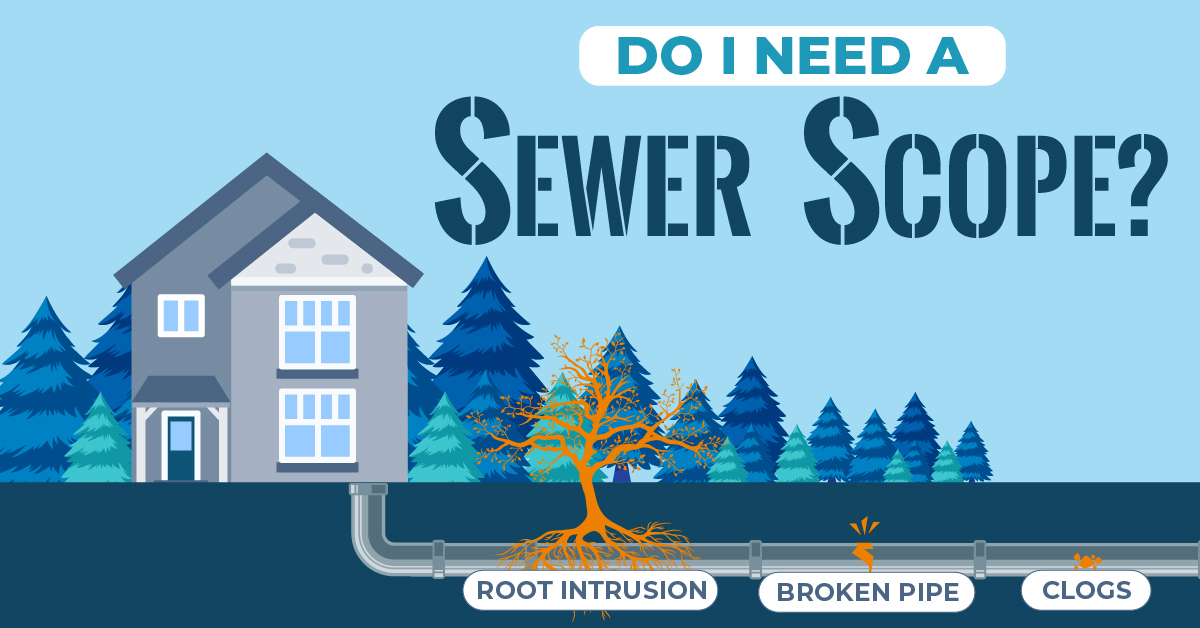
What can a Sewer Scope Inspection find?
When I’m inspecting a sewer lateral line I’m looking at the inside of the line for any serious issues like cracks, breaks, clogs, defective pipe connections that could cause leaks, and roots that have found their way inside the line. I find cracks and roots to be the two most common issues while inspecting sewer lines in Orange County and L.A. County. Both are repairable by a qualified plumber either by digging up the problem area and replacing the line or by using a trenchless repair method. Commonly, the older vitrified clay lines have the most issues since they are brittle and have had decades of use. Having a sewer scope inspection performed is equally important when buying a new home as it is when buying an older home. It’s not just the decades-old homes that can have significant sewer problems, Occasionally brand new homes have issues as well. Improper bedding, crushed lines from careless installation, and construction debris are all defects that could be found at a newly constructed home.
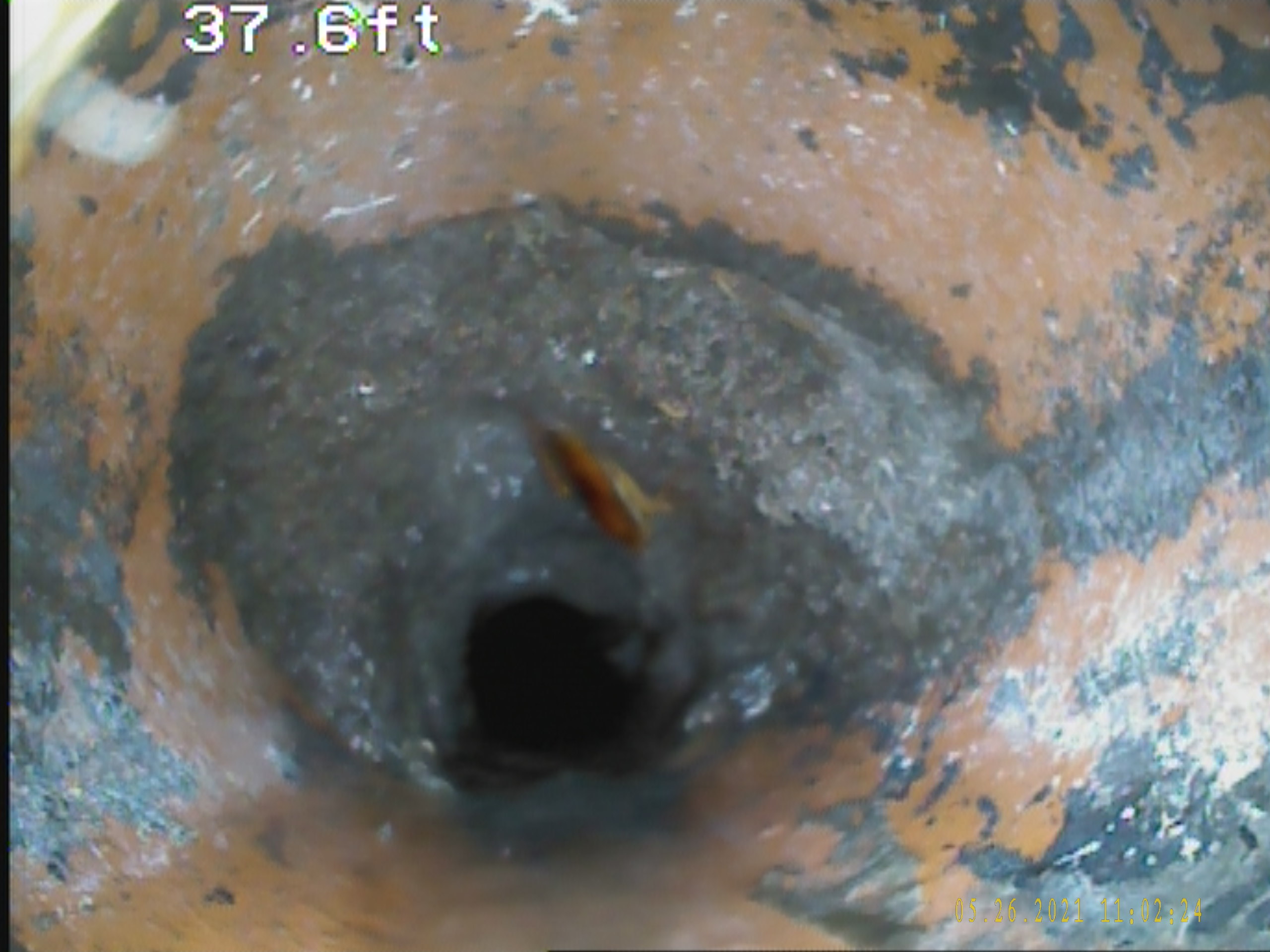
Your sewer system requires maintenance too.
Like the rest of the home, your drain and sewer system require regular periodic maintenance; typically, this would consist of either a hydro-jet cleaning, which is a high-pressure wash of the inside of the line, or cleaning using rotating cutting blades. The type of line material will determine which cleaning method the plumber will use so as not to cause any undue damage to the line. Having your sewer system cleaned yearly will reduce the chances of having a serious backup by removing any invading root balls or problematic scale build-up from the pipe walls.
The benefit of a sewer scope inspection for a prospective homeowner is almost unmeasurable. Generally, there will be one of two outcomes from a sewer inspection. Either you will discover some issues that will empower you to make the appropriate decisions on how to move forward with your transaction and possibly start planning for repairs or, you will receive the peace of mind in knowing that you won’t have to stress over the possibility of a sewer problem if the inspection doesn’t reveal any significant problems. Honestly, I feel you can’t afford not to know the condition of your sewer line, considering how important it is to the functionality of your home.
Congratulations, you’ve just scheduled a home inspection! If you are reading this because you have chosen me as your home inspector, I’d like to thank you for the opportunity to serve you. The home inspection is just one step of many in the escrow process, but it’s a critical one! Chances are you only saw the property for a short time during a showing, perhaps even through a virtual showing. Because of this, I urge you to be present for the entire inspection; this will allow you ample time to see what you are purchasing.
How to prepare for your home inspection
As your home inspector, I’m here to answer all of your questions you may have about your new investment. I recommend you take some time to write down any questions or concerns you may have beforehand so you don’t forget to ask while we are at the property. I’d like you to bring a pen and notepad to record any pertinent information that may come up as well as a tape measure to check for furniture clearances or maybe even remodeling ideas.
What to expect during our consultation
Our inspections typically take two and a half to three hours depending on size and property condition and cover everything from the roof to the foundation and everything in between. I’ll make a note of any issues I discover, whether they are significant problems or minor defects that could lead to bigger issues down the road. I’m here for you, so if you have any questions, please feel free to let me know and we can go over any concerns you have. I write my reports as I perform the inspection and also photograph all notable items as I go to ensure a timely report delivery, typically the same day. Our appointment will end with an In-person summary and Q&A session of everything I noted as a concern. I will go over the locations of major system components, shut-off valves and switches, along with recommended home maintenance tasks.

What to do after your home inspection
When you receive the report through your client portal, I urge you to read it in it’s entirety and go over it with your real estate agent to determine your next steps. Your agent is on your side and will guide you through the rest of the home buying process. If down the road you have any questions about the property or the information contained in the report, don’t hesitate to reach out, our relationship doesn’t end at the inspection.
In short, a home inspection is a visual inspection of the major systems and components of a residential building. Most home inspections are utilized by the buyer in a real estate transaction. Home inspections can also be used by the home owner before listing their house for sale.
Home inspectors look for problems with the home and situations that may become a problem in the future — like damaged roof shingles, faulty electrical receptacles, and potentially costly plumbing leaks. All the defects the inspector sees are documented in a report along with information about the home and it’s installed systems. The inspector will list the problem that was identified, provide a picture or video of the issue, include a possible resolution, or a recommendation of the type of contractor the client should contact to have it fixed.
You should choose a home inspector that is certified (or licensed if your state has licensure requirements). The two largest Home inspector associations are interNACHI and ASHI. Both have standards of practices that their members must adhere to with every inspection they perform.
Be prepared to be at the home for at least a couple hours. A good thorough home inspection should take about three hours for an average sized single family home. Your home inspector will look at the building from the roof to the foundation and everything in between, so now is the time to ask any questions you may have.
You should expect to pay somewhere around $300.00 to $500.00 for a residential home inspection. Variables that could affect the cost would be square footage, local market, and of course demand.
If you have any questions about home inspections or the inspection process feel free to leave a comment!
Crosswind Home Inspection
Proudly serving Orange County and Los Angeles County, including Cerritos, Huntington Beach, Los Alamitos, Seal Beach, Westminster, Long Beach, Surfside, Sunset Beach, Irvine, Belmont Shores, Lakewood and beyond.
7:00 AM-7:00 PM

